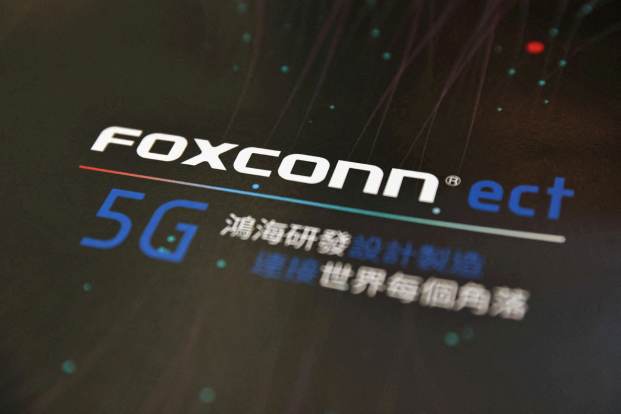Taiwan is weighing a fine up to T$25 million ($835,600) on tech firm Foxconn for funding a Chinese chip conglomerate without getting regulatory nod, a source aware of the issue said on Friday.
Contract electronics maker Foxconn said this week it has become an investor in struggling Chinese chip conglomerate Tsinghua Unigroup via a 5.38 billion yuan ($797 million) investment by a subsidiary.
The investment comes as Taiwan turns a wary eye on China’s ambition to boost its semiconductor industry and has proposed new laws to prevent what it says is China stealing its chip technology and key personnel.
Foxconn did not seek prior approval from the Taiwan government before the investment was made and authorities believe that violated a law governing the island’s relations with China, a person familiar with the matter said.
Regulators Weigh Maximum Fine
Regulators are weighing whether to hand Foxconn the “maximum” fine possible due to the large size of the Chinese investment, the person added.
Foxconn referred to an earlier filing on the stock exchange, saying it will deliver the documents to the Economy Ministry’s Investment Commission in the near future.
Taiwanese law states that the government can prohibit investment in China “based on the consideration of national security and industry development.” Those violating the law could be fined repeatedly until corrections are made.
Foxconn, best known for assembling Apple’s iPhone, is keen to make auto chips in particular as it expands into the electric vehicle market. The company has been seeking to acquire chip plants globally as a worldwide chip shortage rattles producers of goods from cars to electronics.
Taipei prohibits companies from building their most advanced foundries in China to ensure they do not lose control of their best technology.
Originating as a branch of China’s prestigious Tsinghua University, Tsinghua Unigroup emerged in the previous decade as a would-be domestic champion for China’s laggard chip industry.
But the company fell into debt under former chairman Zhao Weiguo, prompting it to default on a number of bond payments in late 2020 end eventually face bankruptcy.
The conglomerate has yet to produce any global leaders in the semiconductor sector.
- Reuters with additional editing by Sean O’Meara
ALSO READ:
Taiwan Says Foxconn Needs Approval for China Chip Firm Stake
Foxconn Lifts 2022 Outlook as Sales Leap on Strong Demand
Foxconn Plans to Make Chips for EVs, Says Supply Chains Key
























